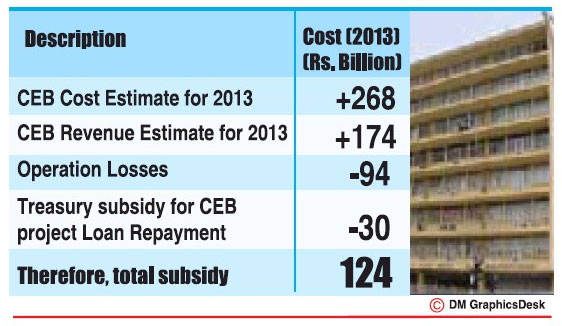01 Mar 2013 - {{hitsCtrl.values.hits}}
 The Ceylon Electricity Board (CEB) has projected an operational loss of Rs.94 billion for the year 2013, which should be ultimately financed by the country’s Treasury, a Colombo-based think tank noted.
The Ceylon Electricity Board (CEB) has projected an operational loss of Rs.94 billion for the year 2013, which should be ultimately financed by the country’s Treasury, a Colombo-based think tank noted. “This colossal loss is to be subsidized by the Treasury through taxes extracted from all citizens, including the poorest of the poor,” Pathfinder noted.
“This colossal loss is to be subsidized by the Treasury through taxes extracted from all citizens, including the poorest of the poor,” Pathfinder noted.
28 Dec 2024 51 minute ago
28 Dec 2024 2 hours ago
28 Dec 2024 5 hours ago
28 Dec 2024 5 hours ago
28 Dec 2024 6 hours ago